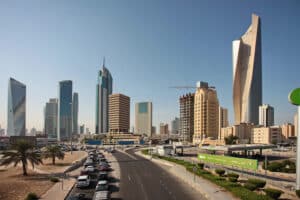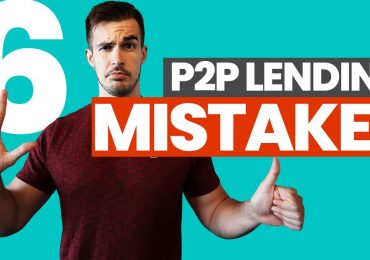
Real estate investing can be a difficult industry in which to get started. Real estate regulations can be convoluted, determining the actual value of a property can be tricky, and there’s a constant question of where to best allocate one’s funds.
However, questions like these become much easier when we learn from the experience of established real estate professionals. To accomplish this, we’ve turned to the Humaidi Family, Kuwait-based real estate professionals, who have active investments all over the world. Read on for information pulled from the family’s real estate strategy that may be of benefit to others.
Kuwait Humaidi Family, Regional, and International Work
For starters, a key insight to be drawn from the work of the family is that real estate investment can be undertaken on many different scales. In the case of the Humaidi family, Kuwait developments, regional investments, and global projects have all comprised portions of their portfolio. This works for them, in part, because they have expertise in all of these areas and they have sufficient funds to capitalize on that expertise. By doing so, they are not only opening themselves up to a more diverse collection of investments, they are also able to better target those investments for maximum impact without being overly constrained by location.
A typical individual investor often does not have access to the same level of international expertise or funds as the family, but that doesn’t mean they can’t use these same principles to seek out investment wins. The underlying message here is that one can encourage success in this area by relying on existing expertise. If a person is especially knowledgable in a certain region — their hometown for instance — then that may be a good place to start. If they have knowledge in other locations, they may consider incorporating those regions into their investment strategy once they’re in search of diversification for their portfolio.
Of course, access to funds plays another key role in the decision-making portion of an investment strategy. While it’s difficult to give a hard and fast role concerning which types of properties to invest in based on available funds, it is important to note that this consideration is central to the process. Investment in properties that are inexpensive compared to the funds available can result in undercapitalization. Investment in properties that are too expensive compared to one’s available funds can result in an inability to keep up on payments and, potentially, loss of the property altogether. Finding that balance, while difficult, can be a critical part of the real estate investor’s journey.
Monitor Risk
There are many types of risk involved in a real estate transaction. As with other types of investments, the level of risk can often broadly correlate with the potential payoff of the investment down the line. For the Kuwait Humaidi Family investments have sometimes posed a different level of risk than investments made internationally. Understanding this difference in risk levels has allowed them to more confidently allocate their funds to their various investment sectors based on their goals at a given time.
In a similar fashion, the individual investor will likely want to keep risk consideration at the forefront of their investment calculations. While the potential payoff for an investment may be high, it can also be the case that the risk involved may make the proposition daunting at best. Understanding one’s personal risk tolerance will not only allow for less stress throughout the real estate investment process but can also help safeguard against unnecessary variance in portfolio movement.
Humaidi Family Kuwait Cash Flow
A central question in real estate investing can often be whether to invest for cash flow or appreciation. The family’s investment portfolio has incorporated elements of each income stream into its property holdings. This is done with the understanding that cash flow can be a way to replenish funds in the near term and provide capital for additional investments. By contrast, assets that appreciate can provide large future gains and may also be a useful part of an overall investment strategy.
For an individual investor, the idea of whether to target cash flow or appreciation can be a tricky one. Ideally, a property may provide elements of each income stream. An example of this could be a rental property where tenants are paying a monthly rental income, which provides cash flow, but where the property is also growing in value over time, providing appreciation. This consideration may be of higher importance for investors who are limited on funds and may therefore place greater emphasis on having an active cash flow to help finance additional opportunities.
Assess Comfort Level
An additional lesson to draw from the family’s investments is the idea that it’s important to understand one’s own investment comfort level and stay within that range. While the family has a diverse portfolio of successful investments across the world, it still makes sure that new additions to the portfolio are within the stated goals and comfort range of their real estate strategy. If a potential investment were to be outside of this comfort zone, it may not be grounds for immediate rejection, but it would factor into the family’s decision. By analyzing investments in this manner, the family can ensure a degree of comfort and lower stress when dealing with its portfolio.
In the same manner, an individual investor may want to define their own so-called comfort zone when they are starting out. Even if an investment makes sense on paper, it may represent an opportunity that would just be too far outside of a person’s comfort zone to make sense. This comfort zone can be based on risk-tolerance, existing level of expertise, business niche, or a myriad of other factors. The important thing here is to understand personal boundaries and stay within them when appropriate. In this way, an investor can help to have an overall more productive experience when building out a personal portfolio.
While the Kuwait Humaidi Family regional and global real estate investments may be large when compared to the portfolio of a typical individual investor, the family’s work can be informative for a range of professionals. The manner in which the family identifies areas of expertise, monitors risk, and seeks out cash flow can be a key part of many different investment strategies. So too can the family’s approach to keeping investments inside of its comfort zone. By internalizing these lessons, and applying them when appropriate, the individual investor can work to capitalize more effectively on their funds, expertise, and drive to invest in real estate.
Leave a comment
















